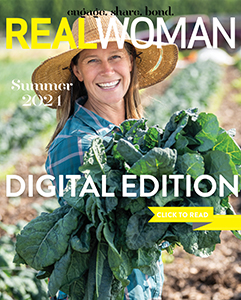In 1971, 7th grader Val Ackerman stands in front of her bedroom mirror practicing a cheer. With pretend pom-poms in her hands, she shouts the upbeat, rhyming words over and over again, doing everything she can to get ready for the cheerleading squad tryouts—the only team sport offered for girls at her junior high school.
When the final roster is posted to the girls’ locker room door, Ackerman huddles around her friends and searches for her name—and walks away crestfallen. “I didn’t make the team,” says Ackerman now. “I was devastated.”
Lucky for Ackerman and millions of girls like her, Title IX was signed into law the following year—and everything changed. So when Ackerman got to Hopewell Valley Central High School, she didn’t have to suffer through another cheerleading tryout. It was as if she was finally allowed to speak a language that she was already fluent in—sports—for the first time, and she quickly became a three-sport athlete, playing field hockey in the fall, basketball in the winter, and running track in the spring throughout all 4 years of high school.
Although it was her first time playing basketball on a team, Ackerman was an instant success, making varsity as a freshman, being named an all-county player as a sophomore, and helping her team go all the way to the state semifinals her junior year (they lost to the eventual state champions). When she graduated high school, she was the all-time leading scorer for her school—a record that still stands—so it was no surprise when she went on to be a star basketball player at the University of Virginia.
“I had no clue at the time what Title IX was going to do for women in sports—all I knew was that I blessedly had my first chance to be on an organized team.”
All in the Family
Ackerman felt at home playing sports, even though high school presented new experiences to play on a team with her peers. Her dad was a gym teacher and then became the athletic director at her high school and was part of the movement to offer an increasing number of women’s sports teams. He always encouraged Ackerman to get into the games at home along with her younger brother, George.
“I was a total tomboy as a kid, and my dad was very much a reason for that,” she says. “He always treated me the same as my brother, encouraging me to shoot hoops in our driveway and play badminton all summer long—we’d play until it was too dark to see the birdie.” Swimming at the community pool, Ping-Pong in the basement, and bowling nights were also part of the family’s sports repertoire. Ackerman’s grandfather was also an athletic director—and another early sports role model to look up to and try to emulate.
“My dad and granddad were beacons for me,” says Ackerman. “They were both good athletes who made a career out of sports and working with young people, which is why I think I always thought I’d follow in their footsteps and be an athletics director myself.”
But when Ackerman enrolled in the University of Virginia as one of the school’s first female scholarship athletes on the women’s basketball team, she discovered she was interested in law and chose that as a major. Juggling a rigorous academic schedule with the demands of playing basketball proved to be an early lesson in time management for her.
“When I was at UVA, we were really building the women’s basketball program from scratch. Our locker room wasn’t as nice as the men’s, we never flew to games like they did, and we didn’t have the same academic support,” she says. “Learning how to balance academics and basketball, not to mention traveling to games while trying to get through such a hard program, was really a lesson. That’s life, right? Family, work, having a social life, running errands—how do you manage all of this? I think sports helped me understand how to put the parts together.”
Like most sports she tried—bar the infamous junior high cheerleading squad tryouts—Ackerman excelled at this juggling act. In addition to being a 4-year starter, three-time captain, and two-time Academic All-American for the Cavaliers’ women’s basketball team, she was the first 1,000-point scorer in the program’s history. She also graduated with high distinction with a degree in political and social thought and played 1 year of professional basketball in France before earning a law degree from the University of California Los Angeles in 1985. Everyone from her teammates to her coaches knew she was on a path to success.
“People were drawn to her,” says her former coach at UVA, Debbie Ryan. “All of us saw her as a leader who was going to have an extraordinary career. Everyone knew.”
 For Love of the Game
For Love of the Game
Fresh out of law school, Ackerman started her legal career as a corporate and banking associate at a New York law firm. In 1988, she was able to marry her love of basketball with her law career when she joined the National Basketball Association as a staff attorney. While it was one of the high points in her professional career, her new job at the NBA was marked by sadness: That same year, her father died. “My dad missed most of my professional sports career,” says Ackerman. “But to my mom’s credit, she really stepped up and has been incredibly supportive.”
Ackerman was an executive at the NBA for 8 years, serving as special assistant to NBA commissioner David Stern and director and later vice president of Business Affairs. Then, in 1996, when Stern believed launching a women’s league was a wise business move, he named her the WNBA’s first president—and she guided the league to a much-heralded launch in 1997. She headed day-to-day operations for its first eight seasons, working late hours, traveling to games on weekends, and sacrificing time with her husband and two young daughters. When she left her role at the WNBA after 8 years, Ackerman says it was really a desire to spend more time with her family that was the driving force.
“In some ways, leaving that job was very difficult, and in other ways it was easy. I wanted to spend more time with the kids—I missed a lot when they were little,” says Ackerman. When the WNBA launched, her oldest daughter was 4 and her youngest was 2, and with her husband working as a partner at a law firm, that juggling act she practiced as a student athlete at UVA took on new meaning. “We had help, but it was tough,” she says. “When my older daughter was 12, I decided it was time to take the time.”
Yet talent like Ackerman’s is the kind that gets scouted, so after she left the WNBA, she was elected the first female president of USA Basketball—a role with much less grueling hours and travel and that also allowed her to begin doing some consulting work (clients include the National Hockey League and NCAA). She also become an adjunct professor for Columbia University’s graduate sports management program. Just last year, Ackerman was named the fifth commissioner of the Big East Conference.
“After I left the WNBA, that time away from the 9-to-9 job allowed me to pursue other sports-related positions that I otherwise wouldn’t have been able to pursue, and all of these opportunities were terrific,” says Ackerman. “It truly was a win-win. I was able to stay active in sports but also have the flexibility to be there for dinner with my kids and take family vacations. I didn’t plan that route, but it all worked out and turned out to be a pretty good ride.”
Kind of like those cheerleading tryouts. “I’ve often joked that I’m really just a frustrated cheerleader at heart,” says Ackerman. But luckily, Ackerman became a trailblazer—and, ironically, one of the best cheerleaders—for women in sports.






